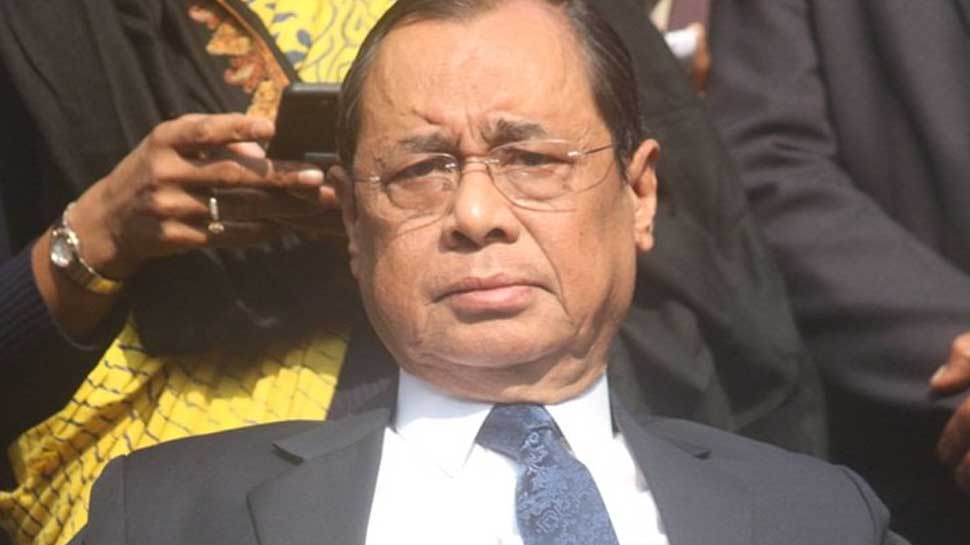Former Chief Justice of India Ranjan Gogoi, who was nominated to the Rajya Sabha by President Ram Nath Kovind on Monday (March 16), said on Tuesday (March 17) that he will speak about accepting the nomination after taking oath as MP of the Upper House.
"I will go to Delhi probably tomorrow. Let me first take oath, then I will speak in detail to the media why I accepted this...," Gogoi told the media in Assam's Guwahati.
Gogoi was nominated to the Rajya Sabha by President Kovind on Monday (March 16). The notification said, "In exercise of the powers conferred by sub-clause (a) of clause (1) of Article 80 of the Constitution of India, read with clause (3) of that article, the President is pleased to nominate Shri Ranjan Gogoi to the Council of States to fill the vacancy caused due to the retirement of one of the nominated member."
Meanwhile, Gogoi's nomination to Rajya Sabha has not gone down well with several opposition parties, including Congress, Aam Aadmi Party and AIMIM, with many claiming that Gogoi's nomination to Upper House of Parliament was quid pro quo.
Former Karnataka CM and Congress leader Siddaramaiah said, "What is the message that President is trying to convey to the people of India & future CJIs?"
AIMIM chief Asaduddin Owaisi also criticised the move, adding that it will have repurcussions of the move on independence of the judiciary.
AAP MLA Raghav Chadha also raised question over Gogoi's appointment and said that it will set a bad precedent and cause huge loss to the independence of judiciary.
"This will not merely set a bad precedent but will cause irreparable damage to the indepence of judiciary. Separation of powers btw the legislature, executive & judiciary is part of the basic structure of our Constitution - which this Govt has systematically dismantled & damaged," he tweeted.
Ranjan Gogoi, who retired on November 17, 2019, served as the 46th Chief Justice of India from October 3, 2018, to November 17, 2019.
Gogoi delivered several historic decisions during his tenure, including key verdicts in highly-sensitive disputes like the Ayodhya Ram Janmabhoomi Babri Masjid title dispute case, the 'Entry of women to Sabarimala Temple' row, and the Rafale deal controversy, and the Assam NRC dispute.
Heading a five-judge Constitution bench, Ranjan Gogoi, who was then Chief Justice of India (CJI), had delivered the historic verdict on the decades-old Ramjanmbhoomi-Babri Masjid title suit (Ayodhya case).
The Supreme Court had unanimously handed over the disputed site at Ayodhya for the construction of a Ram Temple, and set up a trust for the purpose, besides giving five acres of land to the Sunni Waqf Board in the temple town.
Gogoi, who had succeeded 45th CJI Dipak Misra, was succeeded by current CJI Sharad Arvind Bobde on November 17, 2019.
















